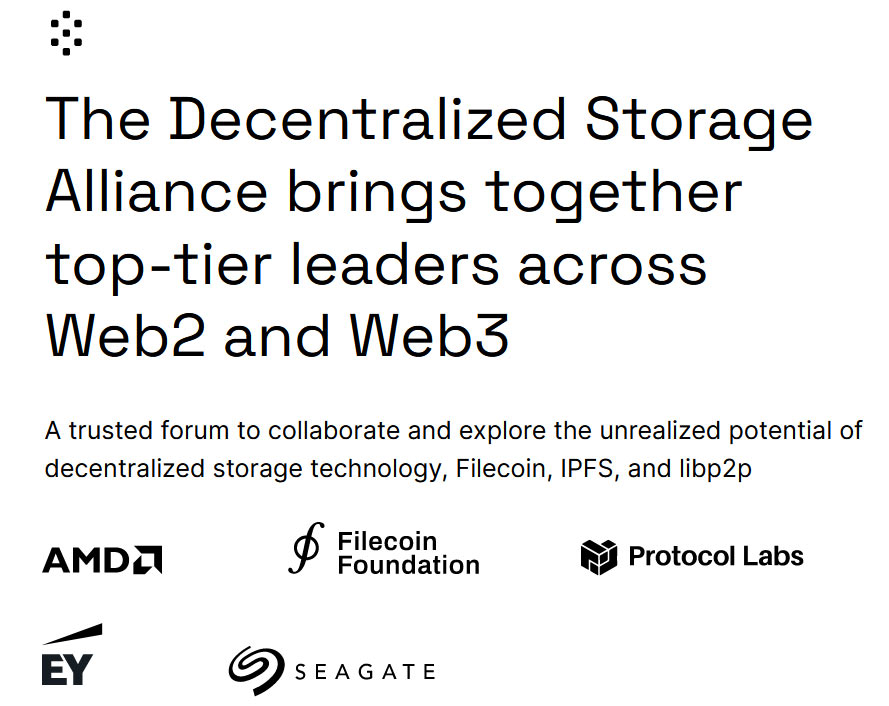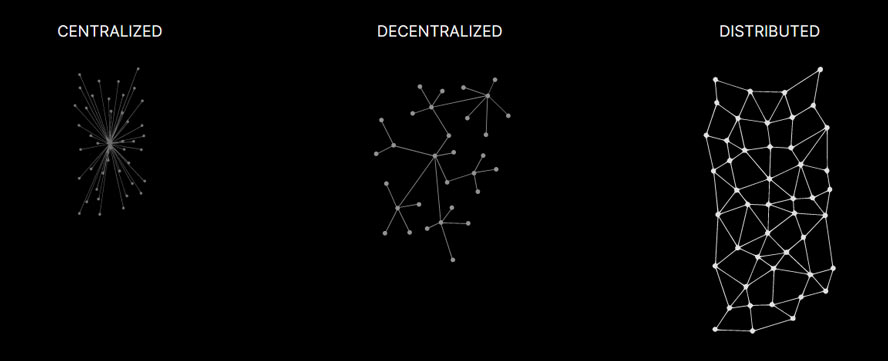AMD Becomes Leading Player in Decentralized Storage Initiative
Crypto, decentralized storage-style
The Decentralized Storage Alliance was born Tuesday — promising cooperation between major technology players to facilitate the transition between Web2 and Web3. The major thrust of this initiative, indicated by its name, is in evolving decentralized storage, driving awareness of this technology, and promoting its adoption. Major technology partners include AMD, Seagate, Ernst & Young, Protocol Labs, and the Filecoin Foundation.

AMD's role in the Web3 tech coven is leveraging its expertise in high-performance and adaptive processor technologies — combining CPUs, GPUs, FPGAs, Adaptive SoCs, and deep software integration. This expertise is expected to be instrumental in the future success of decentralized storage.
Seagate is a well-known provider of physical storage technology, and has been even before the days of Web1. Its solutions range from home users to businesses and even to the cloud providers (Web2), which this newer technology hopes to displace. It's wise for Seagate to get onboard and be a guiding member of this alliance from the beginning if — as expected — decentralized storage does take off one day.
Investments and accountancy firm Ernst & Young will take on the role of guiding and developing secure blockchain technology for storage, to benefit its customers.
The above trio, alongside alliance founders Protocol Labs and the Filecoin Foundation, aim to set up a widely-adopted foundation for decentralized storage by embarking on the following tasks:
- Developing standard specifications and reference architectures that address the unique needs of enterprise companies.
- Providing access to education materials, technical resources, and best practices.
- Improving the process of onboarding data to decentralized storage networks and making it easier for new data centers to onboard to the network.
- Enabling the creation of impactful Working Groups that solve specific issues with the transition to decentralized storage technologies and Web3.

Why would you be interested in decentralized storage? This storage technology promises a Web3 version of the cloud — offering great efficiency and robust security, as well as a "significantly lower" cost. Its decentralized nature means that uses of this storage tech aren't locked in to a provider — they will meet data sovereignty requirements, and will benefit from other advantages inherent in the blockchain.
Filecoin is the largest provider of this type of service: Filecoin says it hosts 240 PiB of data, which is approximately 65,000 Wikipedia's worth of data. Its customers number in the thousands, and include UC Berkeley, USC's Shoah Foundation, and the University of Utah. It seems like the Decentralized Storage Alliance is off to a good start.
Get Tom's Hardware's best news and in-depth reviews, straight to your inbox.

Mark Tyson is a news editor at Tom's Hardware. He enjoys covering the full breadth of PC tech; from business and semiconductor design to products approaching the edge of reason.
-
George³ I don't know friends, but for me already "crypto", it makes me want to throw up. Why do we humans continue to inflict this abomination upon ourselves?Reply -
Crypto is a fantasy. If it ever becomes a major threat, you can be guaranteed that the owners of the IMF will be coming after them. They will own it or they will shut it down.Reply
-
jp7189 It's too bad to see this knee jerk reaction to the word "crypto". Blockchain doesn't have to be about money or scams or pyramid schemes.Reply
This article isn't as much about crypto as it is about decentralized storage. There are so many hurdles to overcome, but it is a wonderful idea in and of itself. Blockchain is a key piece to maintaining security and integrity. Beyond that, this is a great example of a project that is trying to bring value to the world - it's not just a store of wealth like other "crypto" projects, but aims to provide a useful service. -
jkflipflop98 Yeah, because I want my data shredded into tiny little chunks and spewed about the internet to random servers like digital confetti.Reply
"Your scientists were so busy worrying about if they could do this, they never stopped and wondered if they should" -
George³ Reply
Yes, but as always, good intentions are usually abused. There are countless facts.jp7189 said:It's too bad to see this knee jerk reaction to the word "crypto". Blockchain doesn't have to be about money or scams or pyramid schemes.
This article isn't as much about crypto as it is about decentralized storage. There are so many hurdles to overcome, but it is a wonderful idea in and of itself. Blockchain is a key piece to maintaining security and integrity. Beyond that, this is a great example of a project that is trying to bring value to the world - it's not just a store of wealth like other "crypto" projects, but aims to provide a useful service.